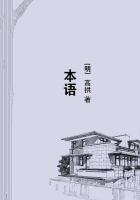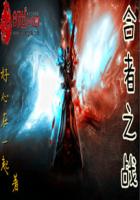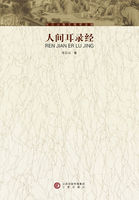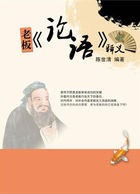King Henry is dead; Stephen, that bold and outrageous person, comes flying over from Normandy to steal the throne from Henry's daughter.He accomplished his crime, and Henry of Huntington, a priest of high degree, mourns over it in his Chronicle.The Archbishop of Canterbury consecrated Stephen:
"wherefore the Lord visited the Archbishop with the same judgment which he had inflicted upon him who struck Jeremiah the great priest: he died with a year."Stephen's was the greater offense, but Stephen could wait;not so the Archbishop, apparently.
The kingdom was a prey to intestine wars; slaughter, fire, and rapine spread ruin throughout the land; cries of distress, horror, and woe rose in every quarter.
That was the result of Stephen's crime.These unspeakable conditions continued during nineteen years.Then Stephen died as comfortably as any man ever did, and was honorably buried.It makes one pity the poor Archbishop, and with that he, too, could have been let off as leniently.How did Henry of Huntington know that the Archbishop was sent to his grave by judgment of God for consecrating Stephen? He does not explain.Neither does he explain why Stephen was awarded a pleasanter death than he was entitled to, while the aged King Henry, his predecessor, who had ruled England thirty-five years to the people's strongly worded satisfaction, was condemned to close his life in circumstances most distinctly unpleasant, inconvenient, and disagreeable.His was probably the most uninspiring funeral that is set down in history.There is not a detail about it that is attractive.It seems to have been just the funeral for Stephen, and even at this far-distant day it is matter of just regret that by an indiscretion the wrong man got it.
Whenever God punishes a man, Henry of Huntington knows why it was done, and tells us; and his pen is eloquent with admiration; but when a man has earned punishment, and escapes, he does not explain.He is evidently puzzled, but he does not say anything.I think it is often apparent that he is pained by these discrepancies, but loyally tries his best not to show it.
When he cannot praise, he delivers himself of a silence so marked that a suspicious person could mistake it for suppressed criticism.However, he has plenty of opportunities to feel contented with the way things go--his book is full of them.
King David of Scotland...under color of religion caused his followers to deal most barbarously with the English.They ripped open women, tossed children on the points of spears, butchered priests at the altars, and, cutting off the heads from the images on crucifixes, placed them on the bodies of the slain, while in exchange they fixed on the crucifixes the heads of their victims.Wherever the Scots came, there was the same scene of horror and cruelty: women shrieking, old men lamenting, amid the groans of the dying and the despair of the living.
But the English got the victory.
Then the chief of the men of Lothian fell, pierced by an arrow, and all his followers were put to flight.For the Almighty was offended at them and their strength was rent like a cobweb.
Offended at them for what? For committing those fearful butcheries? No, for that was the common custom on both sides, and not open to criticism.Then was it for doing the butcheries "under cover of religion"? No, that was not it; religious feeling was often expressed in that fervent way all through those old centuries.The truth is, He was not offended at "them" at all;He was only offended at their king, who had been false to an oath.
Then why did not He put the punishment upon the king instead of upon "them"? It is a difficult question.One can see by the Chronicle that the "judgments" fell rather customarily upon the wrong person, but Henry of Huntington does not explain why.
Here is one that went true; the chronicler's satisfaction in it is not hidden:
In the month of August, Providence displayed its justice in a remarkable manner; for two of the nobles who had converted monasteries into fortifications, expelling the monks, their sin being the same, met with a similar punishment.Robert Marmion was one, Godfrey de Mandeville the other.Robert Marmion, issuing forth against the enemy, was slain under the walls of the monastery, being the only one who fell, though he was surrounded by his troops.Dying excommunicated, he became subject to death everlasting.In like manner Earl Godfrey was singled out among his followers, and shot with an arrow by a common foot-soldier.
He made light of the wound, but he died of it in a few days, under excommunication.See here the like judgment of God, memorable through all ages!
The exaltation jars upon me; not because of the death of the men, for they deserved that, but because it is death eternal, in white-hot fire and flame.It makes my flesh crawl.I have not known more than three men, or perhaps four, in my whole lifetime, *whom I would rejoice to see writhing in those fires for even a year, let alone forever.I believe I would relent before the year was up, and get them out if I could.I think that in the long run, if a man's wife and babies, who had not harmed me, should come crying and pleading, I couldn't stand it; I know Ishould forgive him and let him go, even if he had violated a monastery.Henry of Huntington has been watching Godfrey and Marmion for nearly seven hundred and fifty years, now, but Icouldn't do it, I know I couldn't.I am soft and gentle in my nature, and I should have forgiven them seventy-and-seven times, long ago.And I think God has; but this is only an opinion, and not authoritative, like Henry of Huntington's interpretations.
I could learn to interpret, but I have never tried; I get so little time.
All through his book Henry exhibits his familiarity with the intentions of God, and with the reasons for his intentions.















